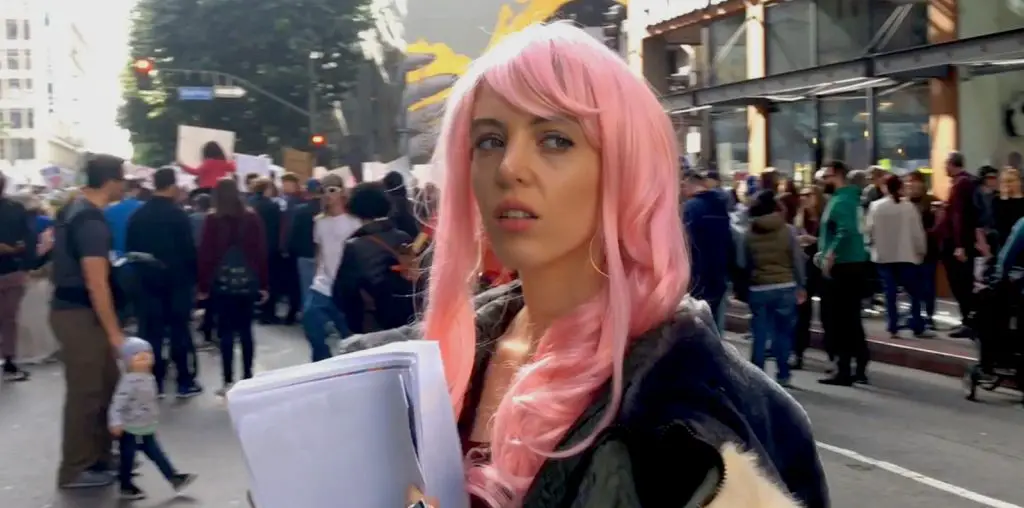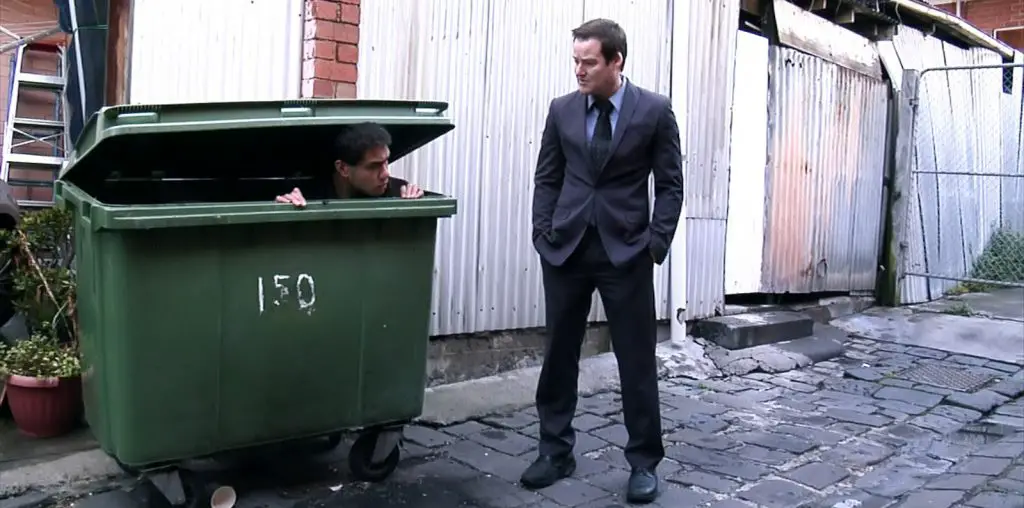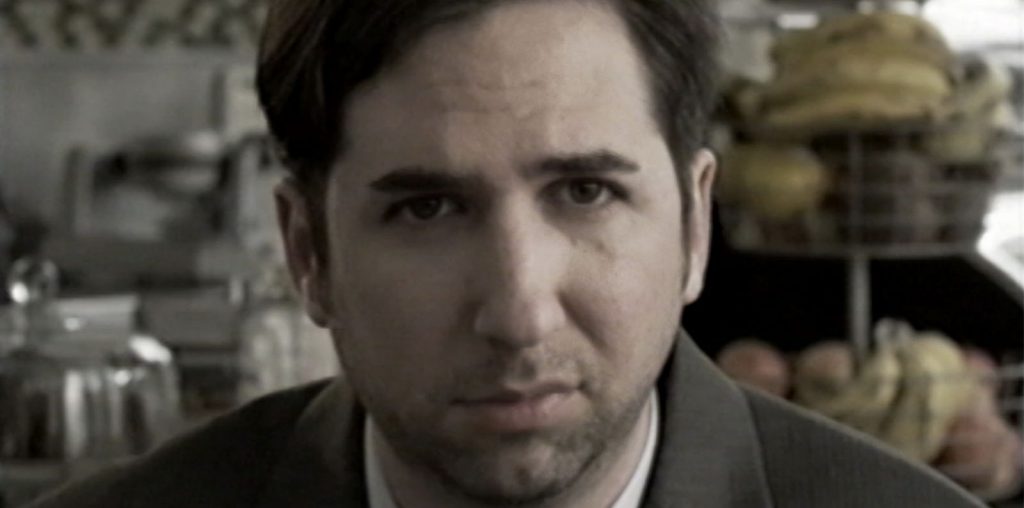
Something funny happens on the way through the dream factory that is writer/director Joe Clarke’s intriguing Alta Vista. Sam (Joe Clarke) makes indie films in Iowa and smokes a s**t ton of weed. He’s all messed up about the recent passing of his father, which causes him to dabble with harder stuff. Sam decides to flee to Los Angeles and go for it as a screenwriter. His sister, Sara (Stacey Scowley), warns him about how rough show business is, but Sam takes the plunge. Sam describes L.A. as “a fantasy. A different planet.” A planet with folks like Jake (Paul Beckman), who does nude aerobics and snorts Adderall to cut down on his cocaine intake.
Jake decides he’s going to help Sam break into the biz big time and promptly introduces him to all the wrong people. His weed dealer Tea (Tanika ‘Tea’ Vickers) keeps him centered with sound advice and product. The mailman (Jimmy Gagarin) reads Sam’s mail because he hates him, leading to a massive kung fu fight. Things get greasy fast in Tinsel Town, and Sam descends into a hard drug whirlpool of frustration. As the dark forces close in, reality starts to quiver. It starts becoming hard to tell what is real versus fantasy in the land of broken dreams.
Creeper is a weed term for strains that you don’t feel the effects until about 15 minutes after smoking. Alta Vista is a creeper by design: it sneaks up and surprises you. It takes 15 minutes to get out of Iowa, during which Sam comes across as kind of a dick. But once we arrive in L.A., everything lights up with the gutbuster arrival of Ray Chao as Sam’s landlord. Chao personifies the whole city’s attitude perfectly with his initial syrupy niceness that suddenly turns to concrete when he demands Sam take the room or f**k off.
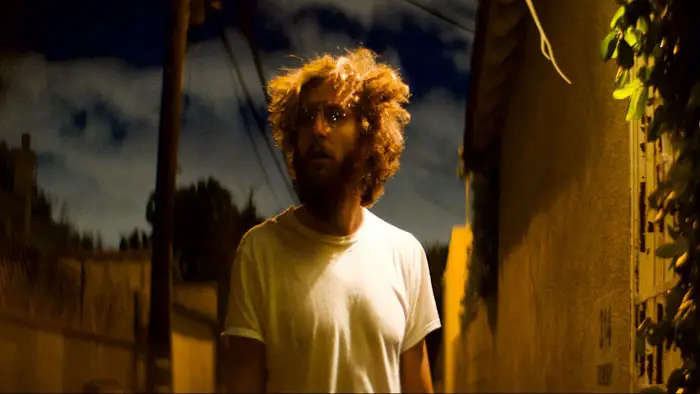
“…going to help Sam break into the biz big time and promptly introduces him to all the wrong people.”
The humor accelerates with Beckman, who gives us full-on ball shadow during his naked workout. Well, done, sir! Marie Hobby’s work as an actualist captures the whole unique atmosphere of the City of Angels, all shiny surfaces above a desert of rot. Clarke’s satirical take on Hollywood approaches the level achieved by Nathanael West in his classic novel Day of the Locust. Just like creeper weed, you sit around normal until you suddenly find yourself laughing your chest off.
However, the comedy is yet another decoy, as Alta Vista morphs into an alternate reality drug odyssey. There are clues in the Iowa sequence that this is where it will end up. Sam has a David Lynch poster in his room and a Laura Palmer t-shirt. A strobe light scene in a restroom with a drug-dealing little person alludes to the famous Black Lodge dance sequence from Twin Peaks. As we get further in, when Sam is going downhill, we start seeing what looks like continuity errors: in one scene, Sam has a beard, but it disappears in the next. Then it comes back again. It soon becomes apparent that the story is going into Lynchian territory, where the reality being presented may not be what is happening. From there, the movie gets fiendishly clever and genuinely heavy. The loss of Sam’s father, which begins its seed as narration exposition, blossoms into a theme explored with depth.
Alta Vista is a surprise that shows you shouldn’t judge a book by its cover. On the surface, it looks like a “My Little Golden Movie” that rolled out at the end of the 1990s. These productions killed the indie scene with content featuring little depth and playing like a failed sitcom. Clarke has crafted something much more than that, transcending those elements with insight and a weird drive. There could have been more sympathy for Sam instead of just assuming identification, but by the time the peculiar kicks in, you won’t care. It’s deceptively simple and ultimately intricate, worthy of repeat viewings.
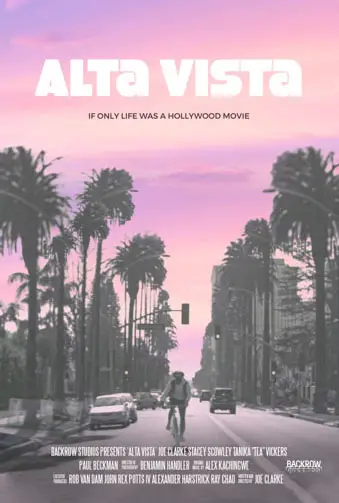
"…deceptively simple, ultimately intricate, and worthy of repeat viewings. "
